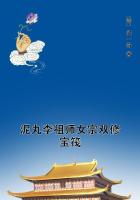[1] Ingold, /Bossuet et la jansenisme/, 1904.
[2] Denzinger, 11th edition, n. 1350.
[3] Denzinger, op. cit., nos. 1351-1451.
[4] Matthieu, /Histoire des miracles et des convulsionnaires de St.
Medard/, 1864.
(d) Quietism.
Molinos, /Guida spirituale/, 1681. /Oeuvres spirituelles de Madame Guyon/, 42 vols., 1713. Guerrier, /Madame Guyon/, 1881. Fenelon, /Explication des maximes des Saints sur la vie interieure/, 1697.
Bossuet, /Sur les etats d'oraison/, 1696. Crousle, /Fenelon et Bossuet/, 1896. Delmont, /Fenelon et Bossuet d'apres les derniers travaux de la critique/, 1896.
Mysticism as implying the substantive union of the soul with God was the distinguishing feature of the pantheistic religious creeds of India, as it was also of some of the Greek philosophical systems. In the Middle Ages, while many of the ablest exponents of Scholasticism were also distinguished mystics, yet more than once Mysticism or the theology of the heart, unrestrained by the guiding influence of the theology of the intellect, fell into grievous errors akin to the Pantheism of the Buddhists and the Stoics. Many of these Middle Age mystics maintained that perfection consisted in the union of the soul with God by quiet contemplation, so that those who reached that state had no need of external aids to sanctity, such as good works, the sacraments, or prayer; that they were under no obligation to obey any law, ecclesiastical or divine, since their will was united to God's will; and that they need make no effort to resist carnal thoughts or desires, as these came from the devil and could not possibly stain the soul. Such, however, was not the teaching of the great Spanish authorities on mystical theology, Saint Teresa, Saint John of the Cross, and Louis of Granada, whose works on spiritual perfection and on the ways that lead to it have never been surpassed. But side by side with this school of thought, another and less orthodox form of mysticism manifested itself in Spain. Many of the sectaries, such as the Alumbrados or Illuminati, carried away by pantheistic principles, fell into error, and put forward under the guise of mystical theology not a few of the extravagances that had been condemned by the Council of Vienne (1311) and by the judgment of the universal Church.
Closely akin to the errors of this Spanish school was the doctrine known as Quietism taught by Michael de Molinos (1640-96), a Spanish priest, who having completed his studies at Valencia took up his residence in Rome. He published a work entitled /Guida Spirituale/ in 1675, the ascetical principles of which attracted so much attention that translations of the book appeared almost immediately in nearly every country of Europe. The teaching of Molinos was denounced to the Inquisition by the Jesuits and the Dominicans, and in 1687 Innocent XI. issued the Bull /Coelestis Pastor/,[1] in which he condemned sixty-eight propositions put forward by Molinos. The author having been arrested was obliged to make a public recantation, and remained a prisoner until his death (1696).
According to Molinos perfection consists in a state of self-annihilation in which the soul remains entirely passive, absorbed completely in the contemplation and love of God. By means of this passivity or complete surrender of the human faculties to God the soul of man is transformed, and is in a sense deified. While in this condition there is no need to act or to desire to act, to think of rewards or punishments, of defects or virtues, of sanctification, penance, or good works, nor is there any necessity to resist carnal thoughts or motions since these are the works of the devil. Such a system, founded nominally on the pure love of God, and leading of necessity to the overthrow of law, morality, and religious authority, found great favour in Italy and Spain, where it required all the energies and powers of the Inquisition to secure its suppression. It was backed by the Oratorian, Petrucci, afterwards created a cardinal (1686), whose books on the spiritual life were attacked by the Jesuit, Paul Segneri, and condemned by the Inquisition.















